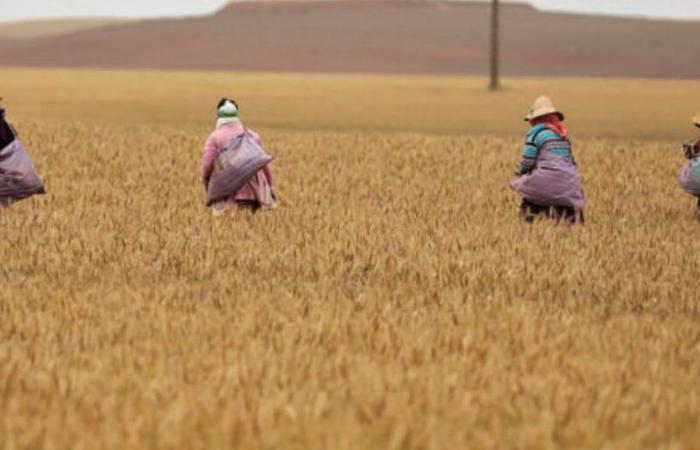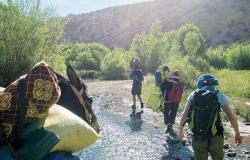After several splendor years on the agricultural level, due to the implementation of the Green Morocco Plan, the Kingdom is currently under the obligation to have to manage a disturbing drop in its agricultural yields and a risk of rarefaction of its fishery resources. A deal likely to question the achievements of several policies in the matter, in particular that known as “import substitution”.
Is Morocco, in the near future, threatened by the shortage of certain essential products, or is it likely to use, for a while, imports to fill the drop in its production? These are questions that seem very alarmist, but to see it more closely, we are entitled to ask them now. And for good reason, the kingdom suddenly finds itself in a position of weakness or risks, in sectors which, until very recently, of strong points: agriculture and fishery products.
In agriculture, the succession of six years of drought posed two major problems, on the one hand, the scarcity of water resources, with a rate of filling of dams under 30% for two years, and In other words, a significant drop in agricultural production, in addition to a decimated herd.
Downward agricultural return
As an illustration, the last agricultural campaign was marked by a 43% drop in cereal production, to only 31.2 million quintals, forcing the State to increase the import quotas of this basic commodity in household food.
Even more worrying, the production of olive oil has dropped considerably. It should be established, this year again, at disturbing levels, since even in the forecasts of the Ministry of Agriculture, we expect an 11% withdrawal of the production of olives compared to last year , and 40% compared to normal seasons. Add the national livestock, decimated by drought … so many observations that make ourselves, this year again, how the State will manage the request during the next Eid Al Adha.
Moreover, in the 2025 finance law, significant tax exemptions have been provided for imports of cattle and other sheep intended for consumption, in order to avoid a shortage and contain the outbreak of prices.
For the time being, unfortunately, it should be noted that the objective has not yet been reached in the markets, not to mention the unavailability of sheep meat in certain places of sale. All this to say that the secture of agriculture and livestock suffers deeply due, mainly, from persistent drought. Alas, the scarcity of water resources also affects another equally strategic sector, that of fishing.
Fisheries in decline
According to statistics of the year 2024, published by the National Fisheries Office (ONP), the marketed products of coastal and craft fishing recorded, in terms of value, a growth of 6%, to more than 10.54 MMDH.
However, the volume of these products has established 1.33 million tonnes, in withdrawal of 1% compared to 2023. If on the Atlantic coast, a very slight decrease of 1% of 1% Landing, the situation is more worrying for ports in the Mediterranean, with a 17% decrease in fishing landings, despite an overall increase in the market value of products.
For professionals in these sectors, we are aware that overfishing poses the problem of the viability and availability of resources. A situation should not be overlooked by export turnover – by around 31 MMDH in 2023, for a total volume of 847,000 tonnes – carried out by industrial fishery activities. It turns out that in markets, fish becomes more difficult to find for local consumers. For a good part of the households, it has even become a product out of reach.
Import substitution
However, if we combine the results of the Green Morocco Plan with other policies carried out in recent years by the various governments, it emerges the feeling that the State had tried to ensure a certain sovereignty for the national economy.
This is the case, for example, of the famous import policy for imports initiated by the former Minister of Industry and Trade, Moulay Hafid Elalamy. A dozen conventions had concerned the sectors of the food industry, the dairy industry, or even fishing, for around 1 MMDH. Except that there, it is the raw material itself which begins to fail, namely agricultural production, due to drought, or fish, due to the overexploitation of fishery resources. Another way of saying that, contrary to what one can believe, the negative impact of climate change is very real on the performance of the Moroccan economy.
With the various projects undertaken as part of the national drinking water supply program, hope remains for the start of catching up from 2027.
Abdellah Benahmed / Eco inspirations





